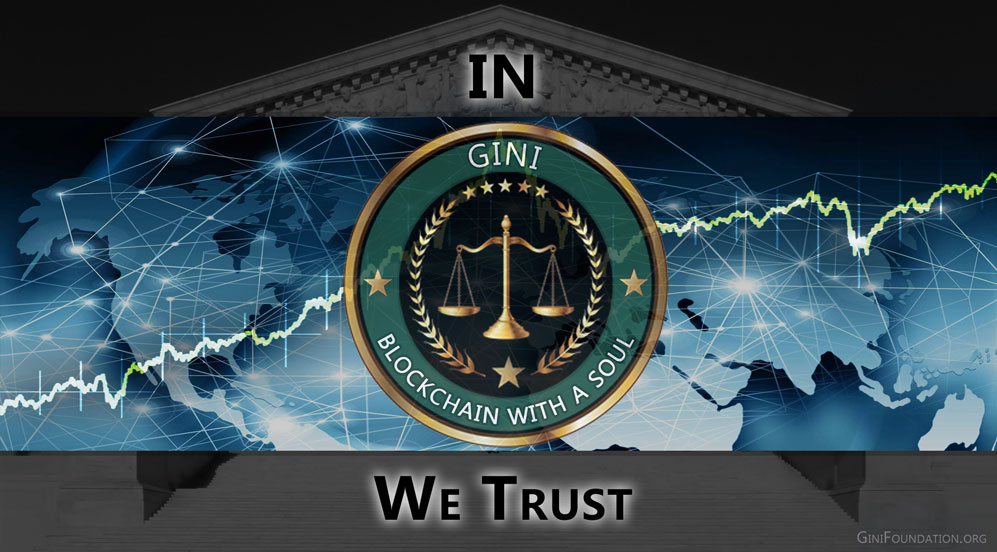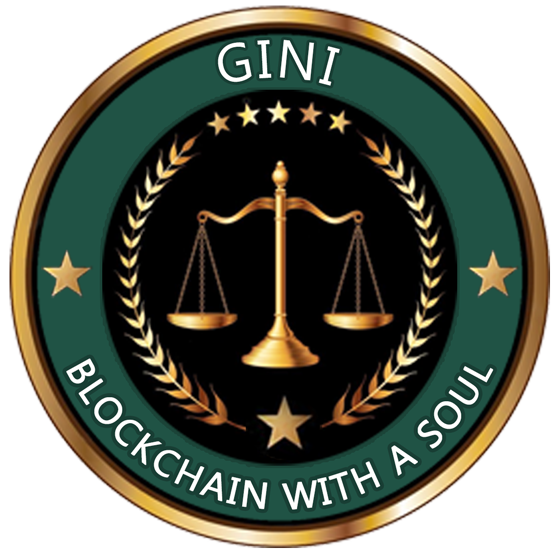How Can We Help?
Why Trust Gini?

Who Should We Trust? The image above was originally created for another Gini article as an expression of our team's belief that Gini is the only cryptocurrency project today that has any chance of achieving what should be the three most important goals for every cryptocurrency project: (1) transaction privacy, (2) sustainable and equitable monetary system, and (3) viability in real-world commerce. However, after I created the image, I remembered that "trust" in any currency is a sensitive topic. So, I was reluctant to use it, but rather than running from this topic, I realized this is an opportunity to discuss a significant problem in the cryptocurrency industry today.
Every Human-Made System Requires Some Level of Trust. This is true for all cryptocurrency projects today and it will be true for as long as human civilization exists. So, the "trust-less cryptocurrency" cheerleaders that naively ignore this reality probably don't have enough technical experience to understand why every human-made system on Earth must at least start with other humans they can trust enough to move the project forward. It's not possible to instantly and magically create a perfectly democratic, fully consensus-based, trust-less blockchain governance system from day one. That's not how any human-made system in the past, present, or future has or ever will be created.
All Systems Have Bias. Every system created anywhere in the universe is vulnerable to various forms of conscious and unconscious bias. The philosophical reasons for this are beyond the intended scope of this article, but suffice it to say that creating a “pure, unbiased system” is an impossible and illogical goal. However, thoughtful, sincere and fair-minded humans can consciously design their systems in good faith to be “non-biased.” The difference between “unbiased” and “non-biased” systems is similar to the difference between “un-profit(able)” and “non-profit” organizations. When you add “un-” to the beginning of “profit” the result is an “unprofitable” company, which is not very useful to society. However, adding “non-” to the beginning of “profit” results in a “non-profit” company, which is often very useful to society.
Non-Biased vs. Un-Biased. “Non-profit” means that a company’s essential purpose is not intended to generate profits, and any profit generated is purely incidental to the purpose of a non-profit company. Similarly, a “non-biased system” means that a system’s essential purpose is not intended to contain any bias, and any bias it may contain is purely incidental to the purpose of the system. This is a very important concept to understand because this distinction can often be the only practical way to accurately evaluate the intentions, behaviors, and performance of organizations and the people and systems within those organizations. This is especially important when those systems are deployed for the benefit of the general public.
Will the System Treat Me Fairly? When we ask whether a person, system, or organization has a conscious or unconscious bias, what we usually want to know is how fairly will we be treated if we interact with that person, system, or organization. If we don’t think we will be treated fairly, then our trust in the person, system, or organization is diminished and we’ll be less likely to use the system or cooperate with the people and organizations on the “other side.” Understanding this dynamic also helps us more clearly understand the conscious or unconscious source of the distrust between Conservatives and Liberals and between the dominant political parties today.
The Source of Partisan Distrust. In today’s toxic political environment, neither side of the ideological wall can really trust that the “other side” will treat them fairly. This distrust is significantly magnified and exploited by the media. As humans susceptible to various emotions and insecurities, when we experience this lack of trust, we perceive the “other side” as being too “biased” (a.k.a. too partisan) to work with us. That perception of bias and lack of trust is what paralyzes the political process and kills any hope of real bipartisan progress.
Hidden Bias vs. Conscious Differentiation. A system can’t be all things to all people. In fact, differentiation is essential at every level of the universe, including the differentiation between biological cells; differentiation between celestial bodies; differentiation between atoms, molecules, animal species, nations, products, services, colors, light and darkness, etc. Human existence is governed by differentiation because life and the universe cannot exist without differentiation. So is it accurate to say, “You’re biased because you think people see better when the lights are on!”? No, of course not, because preferring light over darkness is a rational choice based on a reasonable observation that most activities are more difficult to accomplish in darkness.
Transparent and Legitimate Differentiation. Organizations may try to conceal their bias in many ways, but there is a big difference between pretending a bias does not exist and transparently acknowledging and requiring a certain kind of differentiation to increase the value, quality, security, or viability of a particular system. The criteria for differentiation in any system should be transparent and should logically follow from a legitimate, reasonable, and legally justifiable goal for the system. In this way, an organization can legitimately place greater emphasis on one factor over another to achieve a level of differentiation for the system that is more valuable to society than it would be without the differentiation.
We Embrace Our Uniqueness. While developing Gini's technical and governance systems, guiding philosophical principles, and communications with various stakeholders, the Gini team's explicit and conscious intention is to be nonpartisan and non-biased in every way. However, we are not afraid to consciously and actively differentiate between the economic philosophies guiding Bitcoin (and virtually all other crypto projects today) and Gini's economic philosophy, which we have written an entire book about. The philosophical choices that we have made do not reflect any bias in the negative sense; our choices simply reflect a combination of humanitarian and engineering principles that uniquely differentiates Gini from all other cryptocurrency projects today.
Dealing with Power & Corruption. We are acutely aware of Lord Acton's famous quote, "Power tends to corrupt; absolute power corrupts absolutely," which is why Gini's explicit mission is to protect human rights by protecting our stakeholders' transaction privacy, empowering stakeholders with the technical tools and resources necessary to participate in sustainable and equitable market economies, and gradually migrate the entire Gini Foundation's governance process to the automated Community Governance System. That means Gini project governance will be almost entirely automated and open to voting from the entire Gini community as a truly decentralized, egalitarian organization after the core Gini technology is mature and operating as intended.
Even the Gini Foundation Will not be Able to Dominate the Gini Ecosystem. Our approach to project governance ensures that even the Gini Foundation will never be able to perpetually dominate the Gini ecosystem. We will always be as transparent as possible at every phase of Gini's evolution. In the beginning, we won't have time and resources to respond to every inquiry from the general public, but we will hire more staff and implement more communication tools and resources over time to be as responsive as possible to the general public.
Should You Trust Gini? It should be clear from the nonpartisan content of this website, our books, our sustainable monetary policy, our humanitarian economic philosophy, our decades of experience building and delivering world-class payment and banking services, our history of nonprofit payment processing services, our consensus-based technical project governance principles . . . that our team is more trustworthy than the vast majority of crypto projects today. (Of course, we believe we're the most trustworthy, but we're obviously biased on this point.) If that's not good enough for the "trust-less cryptocurrency" cheerleaders, then they are welcome to ignore Gini. For everybody else, we hope you will join us.
For a more technical exploration of the Gini Trust Protocol and how we perceive the concept of trusted systems, read The Gini Trust Protocol.
Did You Like This Resource?
Gini is doing important work that no other organization is willing or able to do. Please support us by joining the Gini Newsletter below to be alerted about important Gini news and events and follow Gini on Twitter.

